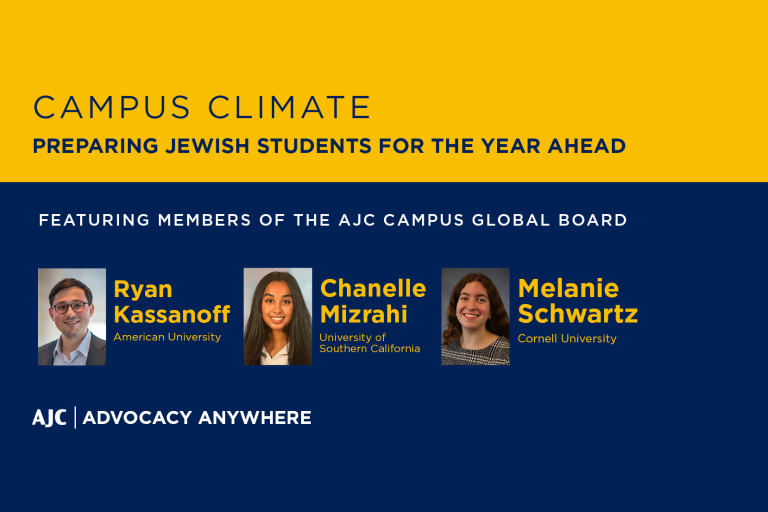October 20, 2019
This interview originally appeared in Polish on ONET.
ONET: The United States is withdrawing from Syrian border areas with Turkey. Have the Americans betrayed the Kurds? They had previously been given a guarantee of security.
DH: This was a tragic decision, one strongly criticized by Democrats and Republicans alike in the United States. The Kurds have been our courageous allies. They deserve support, not abandonment.
ONET: Turkey now wants to launch a military operation in these areas. Their aim is to get rid of the Kurds and to resettle 2 million Syrian refugees there. The Kurds are starting to prepare for self-defense. How do you perceive the next course of events and the consequences?
DH:To leave the fate of the Syrian Kurds in Turkish hands is a disaster waiting to happen. Turkish President Erdogan can hardly be trusted in this matter.
ONET: “If Turkey does something that I, in my great and unparalleled wisdom, consider to be beyond its borders, I will completely destroy and wipe out Turkey's economy from the face of the earth," wrote the President of the United States on Twitter. Now he’s cooling down emotions saying Turkey is one of the key US partners. What kind of game is Donald Trump playing?
DH: One American president after another, from Bush to Obama to Trump, has misread Erdogan, choosing to believe he is a reliable partner. Sadly, he is not. His support for the Muslim Brotherhood, his close ties with Russia, and his domestic repression of opponents, including many journalists, all ought to make that clear. For some reason, however, too often wishful thinking replaces analytical thinking in Washington when it comes to this Turkish leader.
ONET: Kurds would like to have their own country just like the Israelis have. They are located in Iraq, Syria, etc. Is this possible? Is it a good idea? What should be done to make this happen?
DH: It’s certainly interesting that those who repeatedly call for a Palestinian state are strikingly silent when it comes to a Kurdish state. For starters, Turkish President Erdogan, not to mention the European Union, Organization of Islamic Cooperation, Group of 77, etc. Have any of them ever formally called for an independent Kurdish state? Hardly. Why? Are the Kurds not a distinct people with an identity, a history, and a language? Why are the Palestinians deserving of self-determination, but not the Kurds?
ONET: Turkey is a problematic NATO ally who buys Russian S-400 anti-missile devices. To make matters worse, there are a lot of countries that don't want to spend up to 2% of their GDP on defense. How do you think these issues will affect the future of NATO?
DH: We are big believers in NATO, both as a collective security pact and as a community of common values. Many forget that the founding document speaks of a commitment to freedom, liberty, and the rule of law. And our dangerous world continues to require a NATO alliance of like-minded nations. Of course, there are challenges, including cost-sharing, dramatically different operational capabilities, and, yes, Turkey’s drift, especially in its ties with Moscow. But even these challenges should not obscure the pact’s crucial importance.
ONET: How should NATO rediscover/rebrand itself to adjust to contemporary threats? What are the main threats to the alliance? What arrangements should be made during the NATO summit in London to ensure that we are on the right track?
DH: NATO must constantly reassess threats in a changing world. Cyber security, hybrid warfare, competition for superiority in new technologies, terrorism, and domestic interference are some of the danger zones that coexist with, and at times even supersede, “traditional” warfare facing NATO member states.
ONET: How do you evaluate American-Polish relations in terms of increasing US military presence in Poland?
DH: As a proponent of the US-Polish relationship, and as a strong supporter of Poland’s admission to NATO, I welcome the strengthening of the defense partnership. It serves the national interests of both countries.
ONET: In the atmosphere of political crisis, caused by the impasse in the process of forming a government coalition, on Thursday, a new Israeli parliament was sworn in, which emerged in the September elections. What should be done to overcome this political impasse? What is the future of Israeli parliament?
DH: I just returned from a visit to Israel. No one can predict with any certainty today if the political stalemate can be overcome through negotiations among the political parties or if a third election will be called. Whatever the outcome, though, Israeli democracy is remarkably strong and resilient.
ONET: How will this impact the situation in the Middle East?
DH: The current Netanyahu government continues until the political impasse is resolved one way or another. Therefore, Israel’s foes must understand, as I believe they do, that there is no vacuum or indecision when it comes to national security, nor, by the way, are there any major differences with the other major party, Blue and White, in this sphere.
ONET: Is an Israeli-Palestinian peace treaty possible?
DH: Why not? Decades ago, peace with Egypt seemed impossible, but it has now been a welcome fact of life for 40 years. And Israel’s growing ties with a number of Arab countries is one of the most important geopolitical developments in recent years. So, anything is possible. But most Israelis don’t see a peace deal with the Palestinians anytime soon for the simple reasons that they don’t see (a) Palestinian leaders ready for historic compromise, (b) any narrowing of the Hamas-Palestinian Authority split, and (c) what follows President Abbas, who is now in the 15th year of a four-year term. Will that one day change? Let’s hope so.
ONET: Is recognizing Jerusalem as Israel’s capital a good move? Why? Why not?
DH: Yes. It simply acknowledges reality. Every country chooses its capital. Why should Israel be denied the same right? And anyone who reads the Bible understands that Jerusalem has been the geographic and spiritual capital of the Jewish people for more than 3000 years. If a Palestinian state eventually emerges, then that state, too, will exercise its right to choose its capital.
ONET: Why doesn't the Israeli government want to create a Palestinian state?
DH: The issue is far more complicated. There have been several two-state proposals beginning with the UN in 1947. Tragically, all have been rejected by the Palestinian leadership. They were not ready for an historic compromise with Israel. Now, many Israelis have lost hope and trust, fearing instead that a Palestinian state located between Israel and Jordan could be a recipe for instability and conflict. That’s why we have encouraged our European friends to focus far more attention not only on how to help the parties reach an agreement, but also on the “day after” to ensure security and safety for all parties.
ONET: What kind of American-Israeli relations can we expect after the results of this election? The media is saying that the friendship between Netanyahu and Trump may deteriorate.
DH: American-Israeli relations have been incredibly strong since President Truman first recognized Israel in 1948. The main reason has been the overwhelming support of the American people for those relations. They see Israel as a democratic country and reliable ally, as a country of courage and ingenuity, and as the ancestral home of both the Jewish and Christian religions. So, while there are always some ups and downs in any relationship between two countries, I expect the ties to continue to prosper in the years ahead. Both countries benefit enormously from the relationship.


